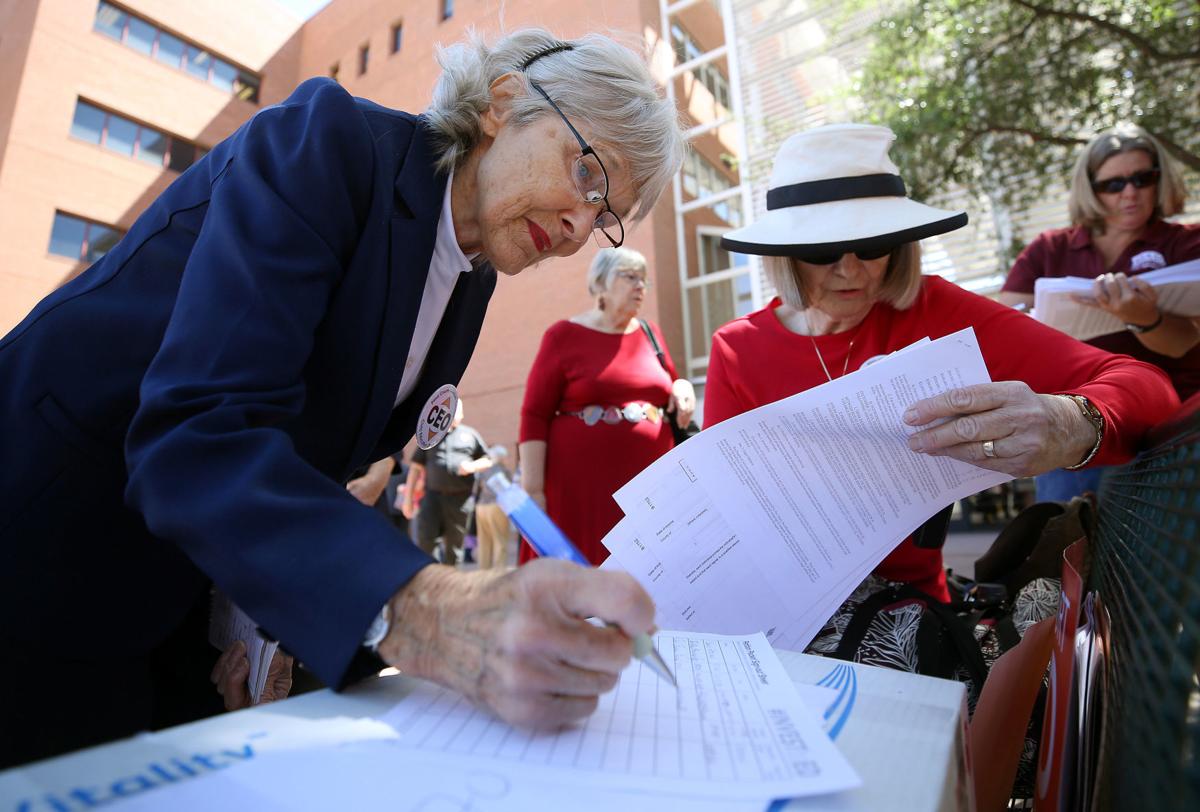PHOENIX — Several organizations are asking the Arizona Supreme Court to void a law they say will make it more difficult for groups like theirs to put initiatives on the ballot.
But they have to get the justices to let them sue in the first place.
In new legal filings, attorney Roopali Desai assails the 2017 law that says all voter-proposed ballot measures must be in “strict compliance” with each and every election law. By contrast, the law up until that point, as interpreted by the courts, has required only “substantial compliance.”
That distinction is critical. It means minor errors that courts might consider innocent, like signatures on petitions outside the lines, erroneous dates entered by signers, and differences in type sizes and margins, would require judges to throw out signatures and potentially entire petition sheets.
The new law has chilled efforts by groups to craft their own initiatives, Desai said. But she has yet to get the chance to make that argument.
A trial judge and the state Court of Appeals threw out the case, saying the new law has yet to be enforced.
More to the point, the judges said no initiative is in danger of being thrown off the ballot for failure to comply with the new standards. That means the case is not legally “ripe” for them to decide, they said.
Desai hopes to convince the Supreme Court otherwise.
Many business interests and Republican legislators who support them have never liked the fact that the Arizona Constitution allows voters to write and enact their own laws. That ability has led to things like a ban on leghold traps on state lands, allowing patients to use marijuana for medical purposes, and two years ago, an increase in the state minimum wage.
It was the wage hike, approved by voters on a 3-2 margin despite strong opposition from the business community, that led GOP lawmakers to approve the stricter standards.
Desai contends the move illegally impairs the constitutional right of voters to propose their own laws.
She said the Legislature, in voting to impose a “strict compliance” standard, is seeking to override prior decisions of the Supreme Court which said “substantial compliance” with election laws is sufficient when voters propose their own laws. Desai said that is a violation of the doctrine of separation of powers and the justices should take this opportunity to slap it down.
“Every Arizona citizen is harmed by this legislative power grab,” she said in her filings with the state high court. “This law would result in making virtually every aspect of the initiative process more difficult and expensive.”
Desai said it would be an unconstitutional violation of rights if initiative organizers had to wait until they were in danger of having a measure thrown off the ballot before challenging a law they contend interferes with their legal ability to propose laws.
She said the issue is not academic for her her clients — the people who want the new law voided — because each has been involved in putting past measures on the ballot. They include the Animal Defense League of Arizona, Planned Parenthood Advocates of Arizona, the Arizona Advocacy Network and Friends of ASBA (Arizona School Boards Association).
The justices have not set a date to consider the petition.





